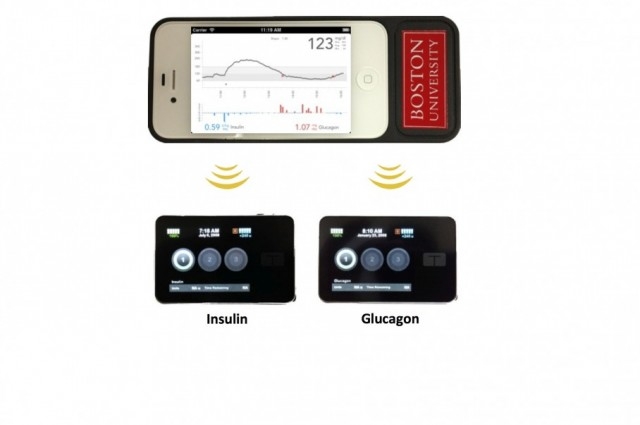For sufferers of Type 1 Diabetes, managing their blood sugar can be a constant struggle. An endless stream of insulin injections and various medications are required to keep their blood sugar levels steady. That may all change, however, thanks to Boston University and Massachusetts General Hospital.
On June 15, the New England Journal of Medicine published an article detailing their research in forming a “bionic pancreas”. This could be a huge breakthrough in the treatment of Type 1 Diabetes, offering a safer and more efficient means of blood sugar regulation.
While there has been some research and testing done in this field, it has never been done in such a way before. Under usual circumstances, data collection has been limited to in-patient monitoring, and while showing promising results, has not been enough to prove that the pancreas could work in everyday settings. While outpatient studies have been a challenge due to the variation in meals and activity levels.
According to the article published online in the New England Journal of Medicine, this round of tests using the bionic pancreas was approached in an entirely new way as the paper states:
“Here, we present the results of two 5-day trials, one involving adults and one involving adolescents, in which we tested an autonomous, wearable, bihormonal, bionic pancreas in two distinct outpatient settings. These studies minimally constrained patients' behavior but allowed close observation for risk mitigation and high-density data collection.”
All patients in the trial had at least a one-year history of type 1 diabetes mellitus and were receiving insulin-pump therapy. The 20 adults who participated had varying ages, with the youngest age of 21 years. The 32 participating adolescents were between the ages of 12 and 21 years.
One interesting aspect of this study was that the patients’ bionic pancreas was controlled all by an IPhone app. The app would constantly keep track of the patient’s blood sugar via a censor placed under the patient’s skin. If said patient’s blood sugar rose too high, the app would tell the pump to release insulin, and glucagon if blood sugar levels were too low. This is how glucose levels are maintained in normal bodily functions.
The results of the tests showed an overall increase in maintaining healthier glucose levels than traditional means. There is still a long way to go before FDA approval, however, given the promising results, a whole new day could dawn for these patients the world over. Researchers hope to have a device approved by the FDA in three years time. New tests will begin soon with 40 adults being implanted with the device for 11 days. We all cross our fingers and hope that we will continue to make such strides toward a cure, if not a more manageable way of living with this disease.























